Gayle meets a mechanical horse simulator at The Brae Riding for the Disabled centre in Dundee.
He’s big, black, shiny, and beautiful and he’s called Blackberry.
I’m not too sure about his breeding but he’s absolutely top-spec – a horse to die for.
I’ve come along to The Brae Riding for the Disabled to meet Blackberry and some of his biggest fans, and I’m hoping I’ll get the chance to ride him.
The best thing about Blackberry? He never misbehaves!
That’s because, unfortunately, he’s not a real horse. He’s a mechanical horse simulator – a fantastic state-of-the-art coaching tool that allows riders to learn in a completely safe and controlled environment without fear of being bucked off.
He can walk, trot and canter, and can accommodate weights of up to 16 stone.
Blackberry has completely transformed the life of former computer journalist Colin Barker who’s been getting riding lessons on him since spring.
He’s there with his wife Jill when I visit and I can tell from the grin on his face that this is a highlight of his week.
New lease of life
When he was 50, Colin developed Adrenoleukodystrophy (ALD) – a rare degenerative disease that affects the adrenal glands and ‘white matter’ of the brain, causing a progressive loss of physical and mental skills.
But now, at the age of 67, he says Blackberry has given him a new lease of life.
“If someone had said to me I’d be learning to ride at the age of 67, I’d have thought they were mad!” he beams. “It gives me such a kick. People talk about life-changing experiences – this has changed my life.”
Colin and Jill drive from their home in Auchtermuchty to The Brae once a week for riding lessons on Blackberry.
It takes two people to help Colin into the saddle, and today centre manger Alex Henderson and physiotherapist Janet Parkinson are on hand.
His face lights up as he gets his feet into the stirrups, sits up tall, and sets off at a brisk walk.
Interactive screen
Looking at an interactive screen, he’s able to experience Blackberry picking his way along a virtual beach, paddling in the sea, and watch waves crash against the shore.
On previous occasions, he’s ridden to a lighthouse, picked apples in a forest, and visited giraffes at a zoo!
Alex tells me Blackberry, who’s “unflappable”, is a great idea for people who are unable to ride real horses, as well as those who are allergic or fearful.
“He’s a pretty well-trained 16hh dressage horse!” she says. “He doesn’t make any mess and he’s relatively cheap to keep. He can take weights of up to 16 stone, while our real horses can only accommodate about 14 stone.”
Transfer skills
The hope is that the majority of riders at The Brae will start on Blackberry and then transfer their skills to live equines.
A 20-minute session requires a great deal of physical and mental effort, as Colin can attest.
“I feel it working – riding a horse is a challenge for anyone, but it’s a big challenge for me!” he says.
“Because you’re watching this screen in front of you, it feels like you’re having a real adventure.”
The colourful range of environments portrayed on the screen are great for those with autism, who might be easily distracted; it makes them feel as though they’re playing a video game.
Colin’s mastered walk and trot and is learning to canter, which requires a fair bit of balance. He manages brilliantly.
“I’ve gone through so many things with ALD but when I’m on Blackberry, all the bad stuff just flies away,” he says.
“It’s a great physical and mental therapy. The disease starts in your feet so I have issues with sensation, but the top of me is fine.
“When I’m on Blackberry, I feel on even terms with everybody else, which is amazing. I’ve learned how to sit properly upright, and it teaches me not to slouch.”
Jill too gains great joy from seeing her husband in his element.
She says: “Unless you live with someone with a disability, it’s difficult to appreciate how crappy it is. So it’s fantastic to see the enjoyment he gets out of this.”
Beneficial for all riders
Once Colin has finished, I hop on for a shot. And what fun I have! I ride through farmland, onto a beach, and through a woodland.
I also head into a dressage arena, so I can have a go at leg yielding, a basic lateral movement.
As a keen rider, I too can benefit – sensors on Blackberry’s sides indicate where my legs should be, and can help build strength, balance, flexibility and fitness.
I accidentally force him into a faster than expected trot at one point, and then turn him too quickly. Sorry lad!
Alex is in control at all times, but should I wish to stop, I simply push a button.
Once my session is over, I head outside to meet some of the centre’s residents.
There’s Romany, Fred, Ambrose, Django, Gizmo and Thunder, and Harris the Highland pony, all gorgeous, friendly creatures.
Looking for volunteers
The centre is always looking for volunteers – it can’t operate without them. – so if you’ve got a few spare hours to dedicate, they’d be hugely grateful.
It was thanks to a generous legacy that The Brae was able to buy Blackberry, who cost rather a fortune.
He’s one of only three mechanical horse simulators in Scotland.
- The rider’s position and posture on Blackberry can be fine-tuned by using mounting blocks, mirrors and sensor analysis. The simulator can help those with cerebral palsy, stroke, Parkinson’s, autism, and other conditions.
- For riders who wish to develop their skills, you can try specialist movements such as leg yielding, passage, half pass and piaffe. brae.org.uk
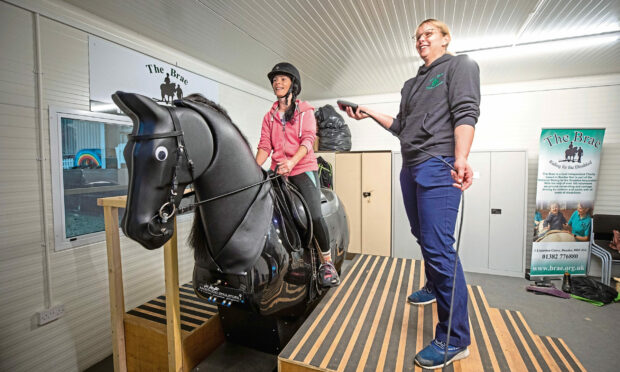

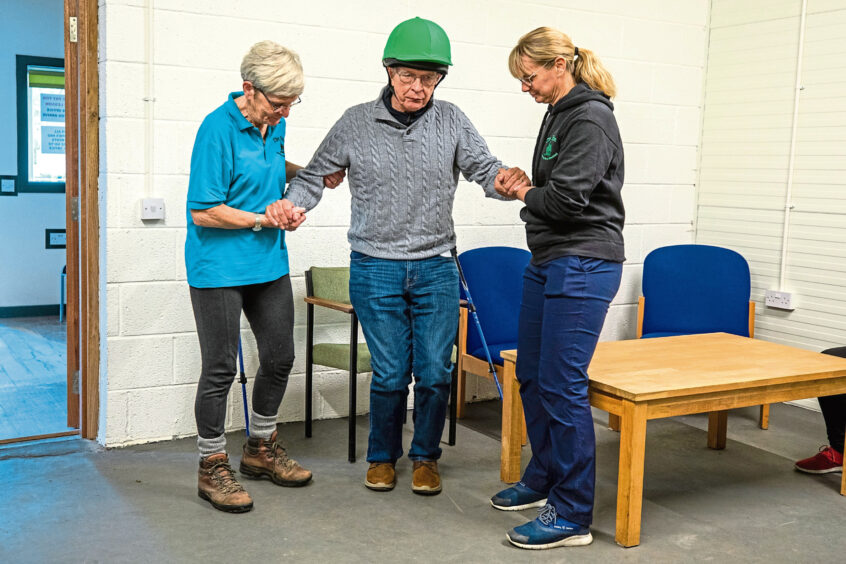
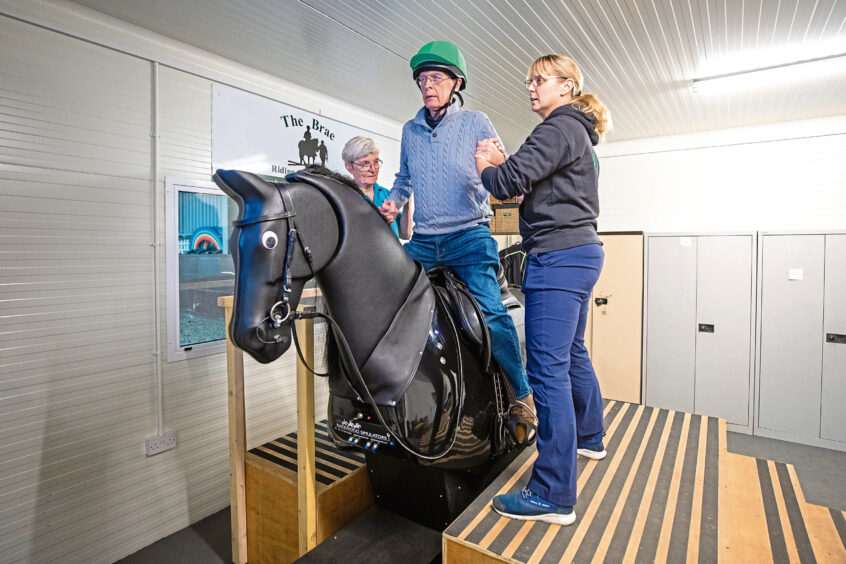
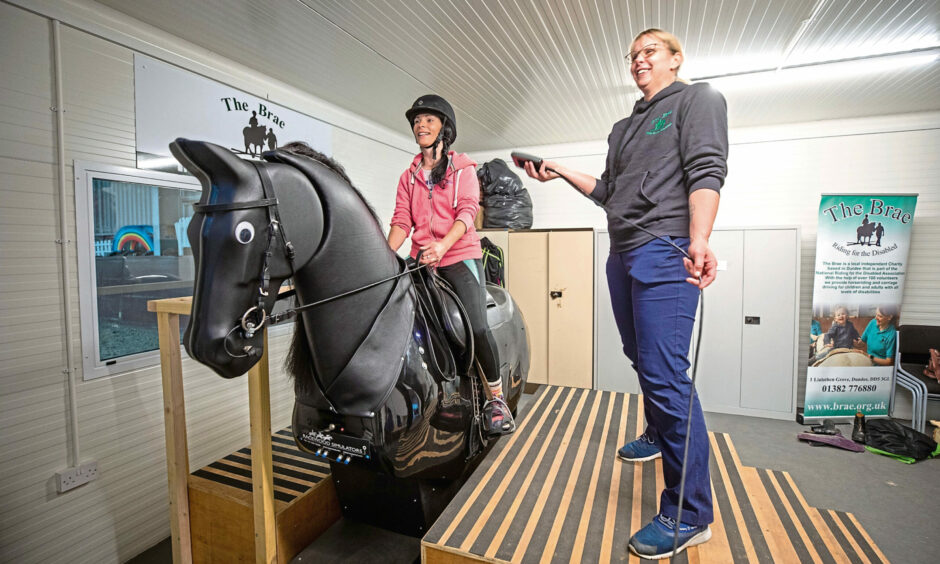
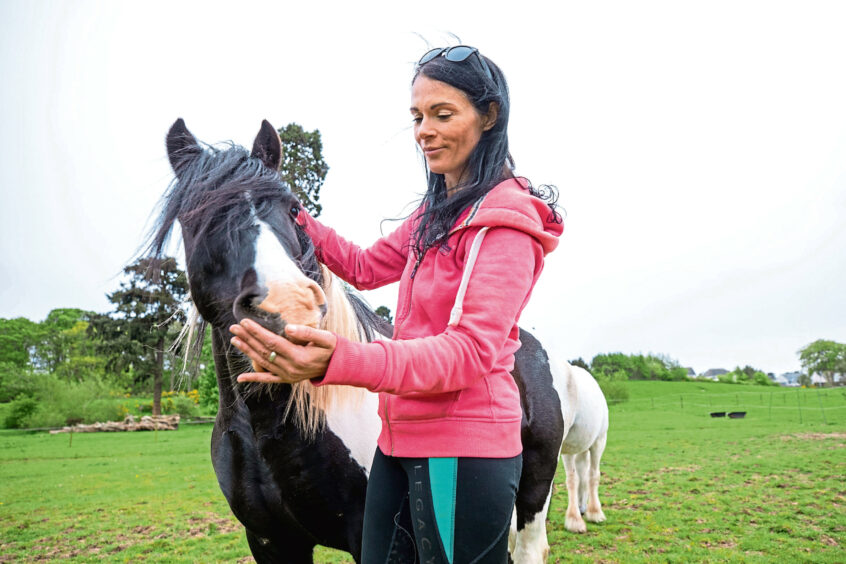
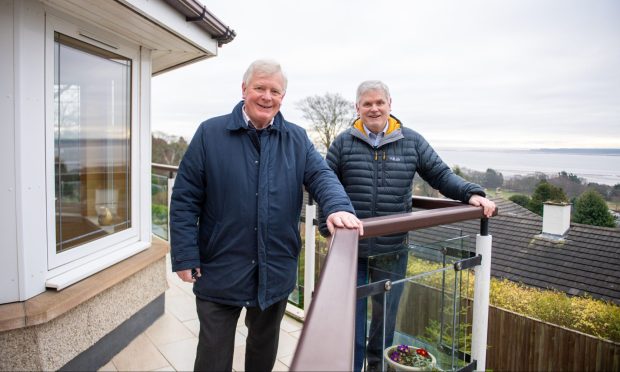
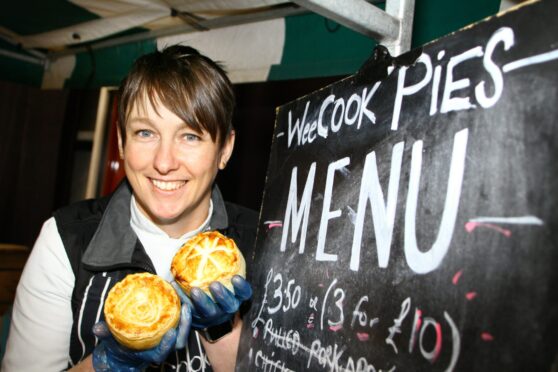
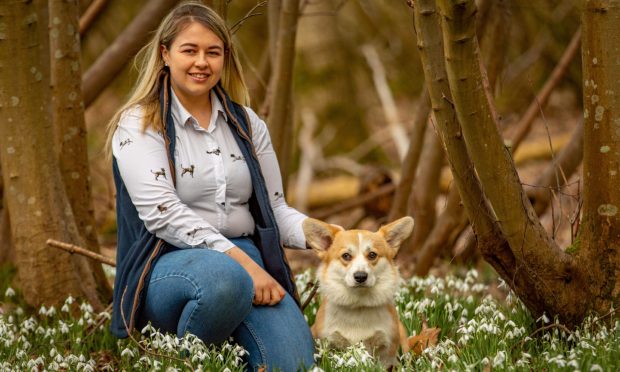
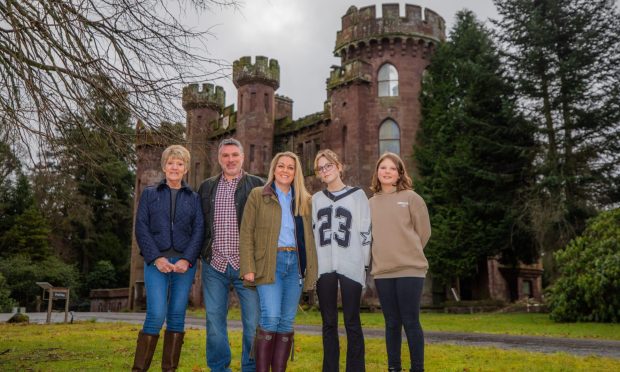



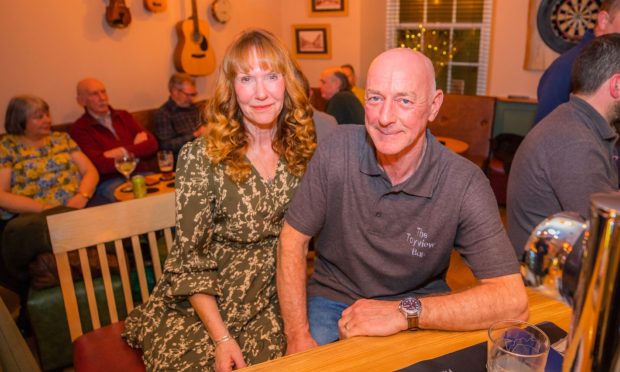
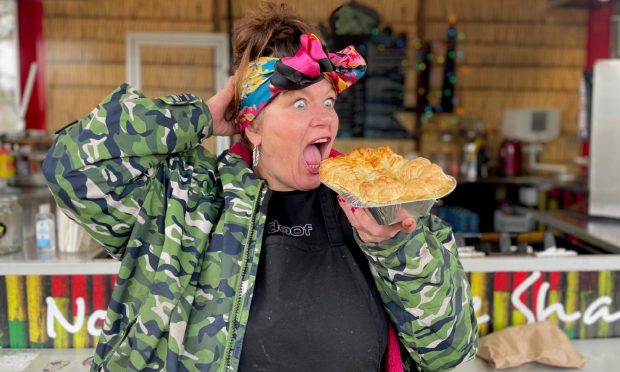

Conversation